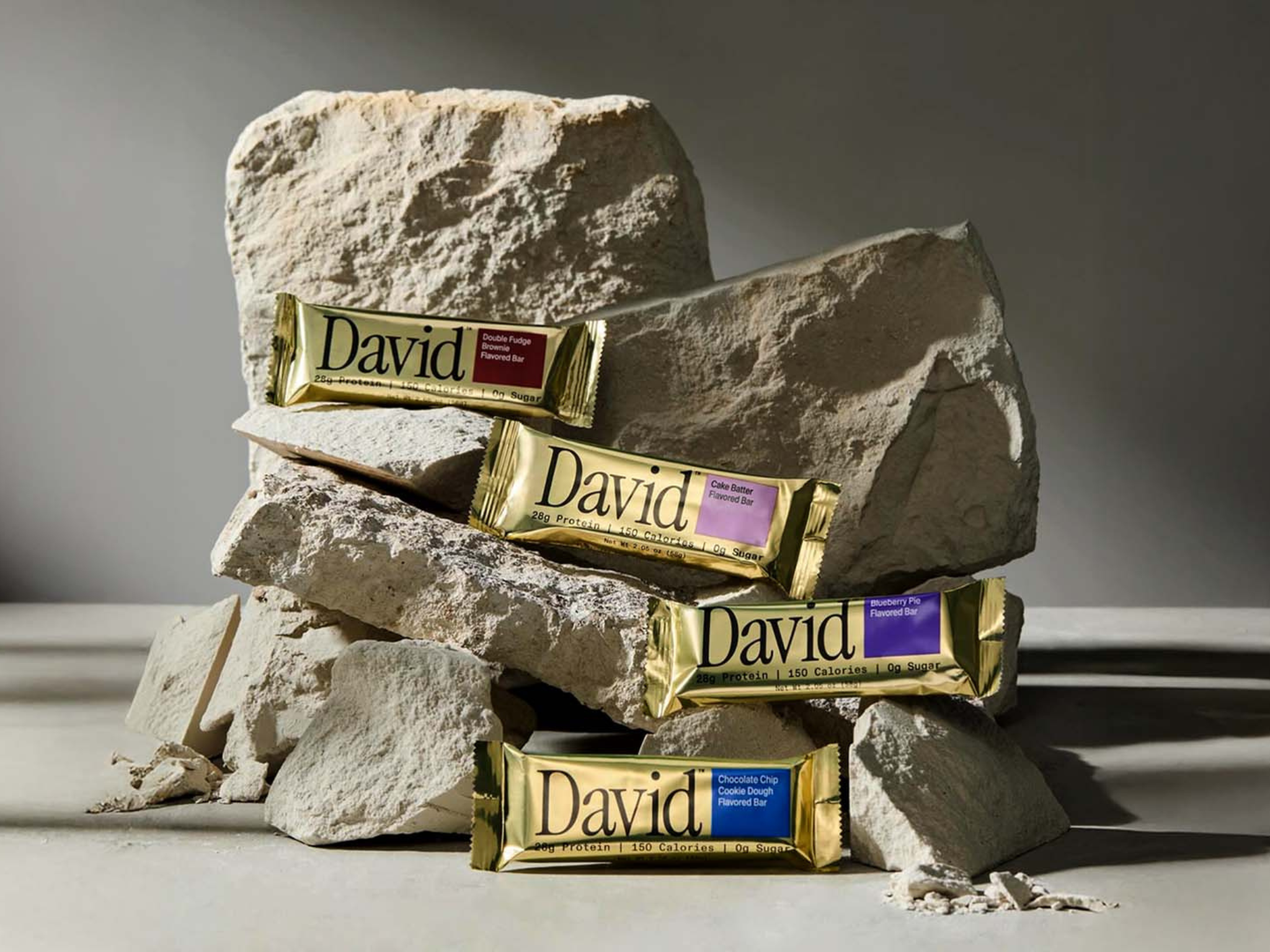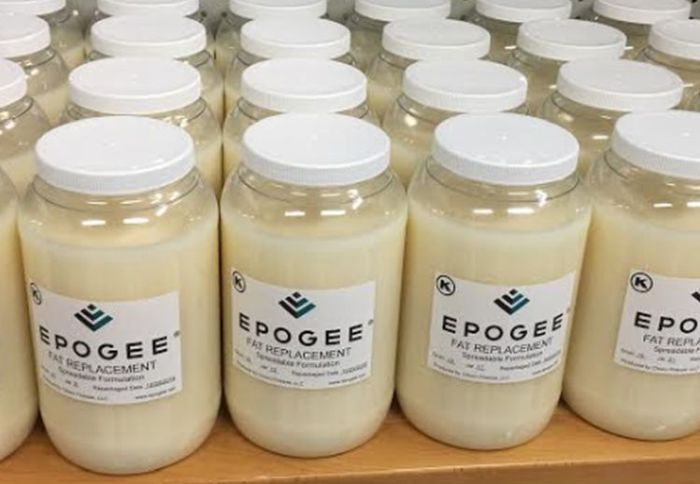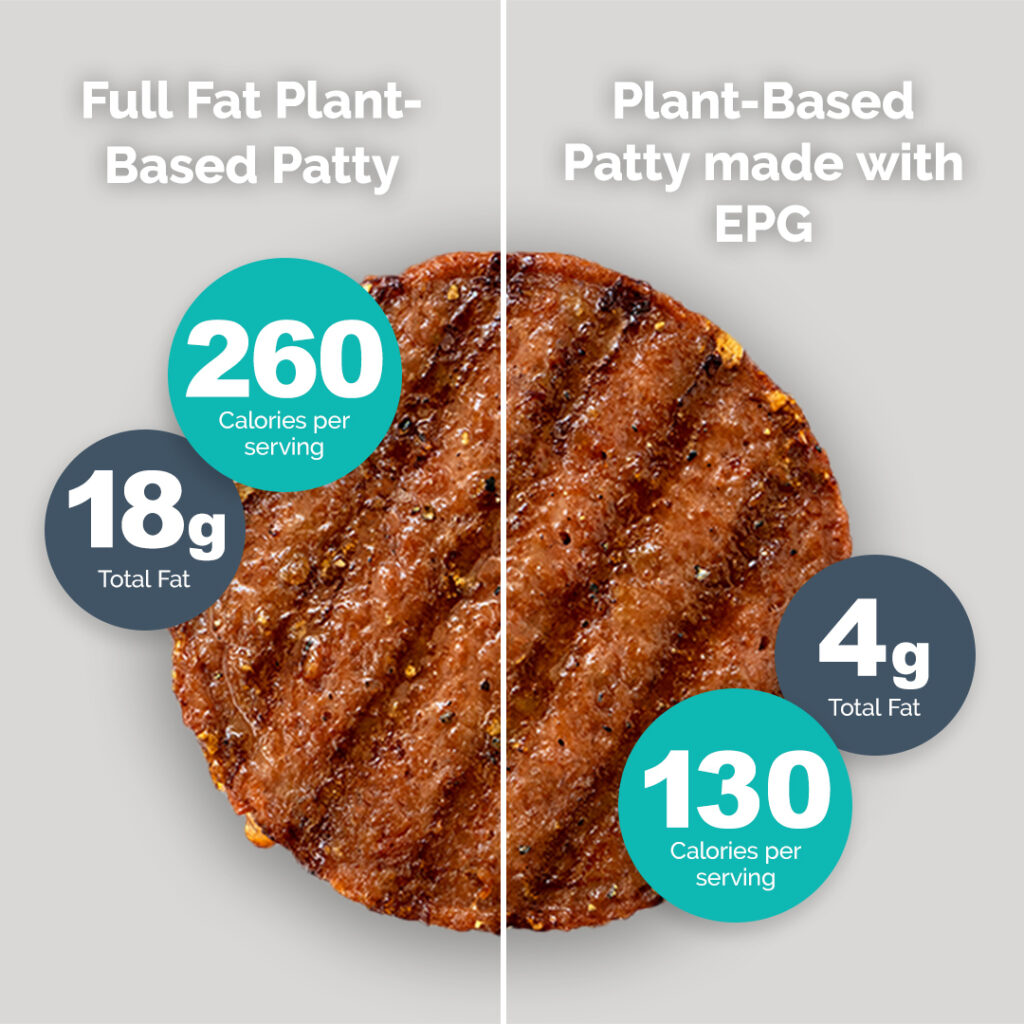
Shortly after acquiring low-calorie fat maker Epogee, David Protein is being sued by other snack brands for allegedly monopolising the ultra-processed ingredient derived from a seed oil.
What was supposed to be a celebratory week for David Protein, the TikTok-famous protein bar startup, quickly turned sour.
The New York-based firm had just closed a $75M Series A round and acquired Epogee, the exclusive manufacturer of a novel plant-based fat that drastically reduces calories, a key component of David’s protein bars.
“This funding and acquisition give us the ability to scale production, expand retail distribution, and accelerate development of new products designed to help people build muscle and lose fat,” David founder Peter Rahal, who built RXBar before selling it to Kellanova for $600M, wrote on social media.
Days later, AgFunder News reported that his company was hit with a lawsuit from three CPG firms that also use Epogee’s fat, which alleged that David was creating an artificial monopoly and violating antitrust laws. Own Your Hunger, Lighten Up Foods, and Defiant Foods said they could no longer access the ingredient, despite spending hundreds of thousands of dollars on R&D, product development, and marketing tailored to it.
Monopolisation isn’t the only accusation facing the deal, though. There are questions about the nature of Epogee’s fat, which is an ultra-processed food (UPF) derived from a seed oil, in an era where both these categories are consistently vilified by MAHA moms and health crusaders. Where does that leave the alternative fat space?
What is Epogee’s fat, and how is it made?

Epogee’s fat replacement is named after its main ingredient, esterified propoxylated glycerol (EPG), a modified fat that resembles triglycerides in structure and appearance, but is designed to prevent or limit their digestion during consumption.
The EPG is derived from what Epogee describes as “naturally sourced” rapeseed (or canola) oil, which it splits into its components: glycerin and fatty acids. It then inserts a food-grade propoxyl connector to relink the two components and make a material that looks, tastes and cooks like fat.
The connector resists the action of digestive enzymes, inhibiting the release of calories during digestion while allowing later breakdown in the environment. The calorie reduction is EPG’s USP. According to Epogee, the modified plant-based fat contains just 0.7 calories per gram, versus nine calories in traditional fat – a 92% reduction.
It can do so without the need for additional sugar or artificial sweeteners, unlike other alternative fats that use sucrose or starches (such as Olestra, the zero-calorie synthetic fat now shunned by food companies made by Procter & Gamble).
EPG can be used as a one-to-one replacement of fat, while retaining sensory properties like mouthfeel, satiety, and texture. All this made it a very appealing ingredient for companies like David, Defiant Foods, Own Your Hunger, and Nick’s Ice Cream (among others), which use it in low-calorie protein bars, chocolates, nut butters, and ice cream, respectively.
Finding success as an ultra-processed seed oil

Epogee’s uptake by a range of CPG startups raises some interesting questions about the state of alternative fats and food tech. Are such fats ultra-processed? Epogee sure sounds like it, meeting the Nova classification’s definition of a modified oil (with some links to interesterification) made from “industrial techniques and processes”.
While, the fat can be labelled on packaging as ‘EPG (modified plant-based oil)’, some experts have pointed out how this can mask the ultra-processed nature of Epogee’s ingredient.
“As a food scientist, the processing and lipid chemistry of EPG is fascinating, a great feat of science,” Kirsten Sutaria, a food R&D expert who has previously led Ben & Jerry’s product development team, wrote on LinkedIn. “As a consumer, I’m a bit sceptical. In the current wave of better-for-you, clean-label, ‘clean up the food industry’ [sic], I scratch my head… This is a poster child of UPFs.”
There are suggestions that this is akin to the rise of margarine and the diet-culture-fuelled fat-free craze of the 90s. Many have questioned its effects on health, echoing a debate that UPFs never seem to escape. “The thought of a ‘Franken-fat’ that’s low calorie as it’s non-digestible and coming from a seed oil doesn’t exactly scream the epitome of health to many,” noted Drew Peters, a nutraceuticals and product development expert.
UPFs account for nearly 60% of the calories consumed by Americans, who have been looking for cleaner-label options. Nutritionists, however, have warned against painting all UPFs with the same brush – a can of Coke is much worse for you than, say, a piece of wholemeal bread from the supermarket.

The UPF backlash is also linked to the discontent surrounding seed oils, which have been disparaged due to the presence of certain fatty acids. Consumers find them unhealthy, even though a wave of scientists and studies say otherwise. It has given way to the resurgence of beef tallow, a fat that went out of fashion decades ago due to its high saturated content, only to be pulled back into the consciousness by TikTok and Robert F Kennedy Jr.
Even amidst the anti-UPF and anti-seed-oil media headlines, David’s bars have found huge success quickly (the company says it’s on track to cross $100M in its first full year of business), giving weight to the idea that high protein snacks trump all in today’s America. The bars have even impressed investors who are shying away from other categories marred by the UPF tag, such as plant-based food, where funding fell by 64% in 2024.
The Epogee lawsuit will undoubtedly be closely watched – David is already addressing customers critical of the move – and it shines a light on how even an ultra-processed, seed-oil-derived product can succeed in a country obsessed with protein. Further, the brouhaha underscores the opportunity for alternative fats. And it shows that investors aren’t completely against UPFs.
As Sutaria said, “For many, macros remain the prominent focus of foods they eat and this works, especially in today’s world.”
The post What is Epogee, the Novel Fat Maker Sparking UPF Controversy & A Protein Bar War? appeared first on Green Queen.
This post was originally published on Green Queen.